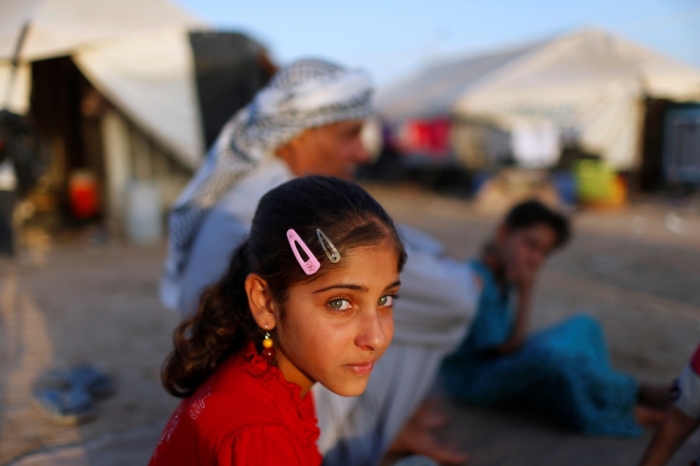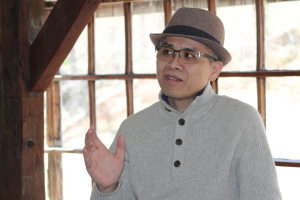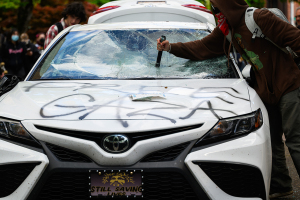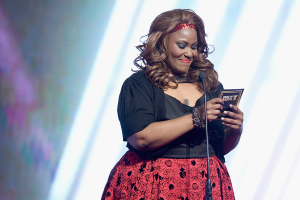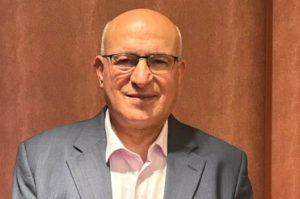ISIS Jihadis Repeatedly Raped Terminal Cancer Patient as 'Prize' for Battle; Sex Slaves Beaten for Crying
Recently published testimony provided by an escaped Yazidi Islamic State captive battling a "terminal illness" has revealed more horrifying details into ISIS' blatant disregard for human rights and how many of the thousands of Yazidi sex slaves were sorted and divided as battle "shares" for militants.
In an op-ed published by the International Business Times, Murad Ismael, a Yazid activist who works for the NGO Yazda, wrote about a Yazidi women named Samia who was taken captive, along with her two sisters, after ISIS seized her Iraqi village of Kocho on Aug. 15 of last year.
Although Samia was diagnosed with cancer in 2007 and was still receiving chemotherapy last August when she was taken hostage — along with 130 other women and girls from her village — that didn't prevent her from being subject to the total wrath of the group's sexual and physical brutality that it systemically imposes on religious minority women.
"I met her in a wealthy home, which took her in after she and her 19-year-old sister, Sanaa, managed to escape the IS captors," Ismael wrote. "Her story shows IS in all its depraved brutality, particularly given she is battling a terminal illness."
While Samia and her sisters, Sanaa and Sara, were loaded up onto trucks and taken away from their village by ISIS militants, her husband, brother and father were separated and taken away with a large group of other yazidi men. Samia's mother was also separated and put in a group with other older women from the village. Ismael reported that the large group of men and large group of older women were later mass executed, although Samia's husband was able to escape before his slaying.
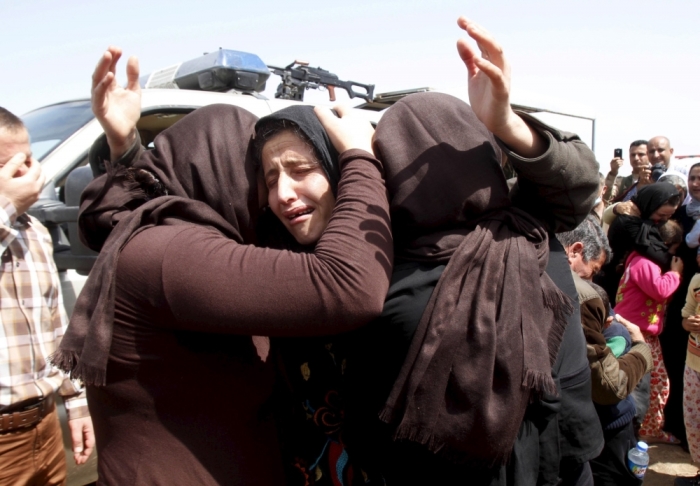
The women and girls were taken to ISIS' Iraqi stronghold of Mosul. When they got to Mosul, Samia said ISIS militants confiscated all the females' belongings, including her cancer medication.
Militants later divided up the group of over 100 girls and sent Samia and her two sisters, along with 32 other women and girls, to live with an ISIS wali (chief) named Haji Shaker.
"The wali received us at his residence [in the IS camp] and told us that we are his share," Samia told Ismael. "Four more Yazidi women were at his residence when we arrived."
After arriving to the ISIS chief's quarters, Samia said she and her sister did not eat for six days. The girls were starved so bad that they wanted to cry; however, there was an ISIS militant standing guard with a chain to beat any woman or girl who cried.
"Even tears were forbidden," Samia explained.
One day, the girls were asked to take a shower. Samia and her sisters knew that meant they would be sexually abused. Although they did not want to subject themselves to that, a militant with a whip forced them into the shower.
In another instance, the militants went around checking on all the women and girls' faces with a flashlight.
"It was my sister's turn, the gunman wanted to check my little sister's face. Sanaa put her head down, but the gunman pulled her by her hair and hit her face with the flashlight," Samia described. "We cried, we begged them to leave my sister alone, and finally the man moved on to another girl. The other girl was also from Kocho, age 15, she was beaten up with the whip and dragged down the stairs from her hair."
"We were very scared, we were crying and screaming. They were beating us up every time we cried. They were insulting us, insulting our faith," she continued.
Samia explained that all the girls that were brought to the chief's house were eventually gifted away to other ISIS fighters as battle presents. While Samia's sister, Sara, was gifted away to another militant, her other sister, Sanaa, remained at the chief's house, where she tried to escape but was caught and punished.
"My sister was beaten up so bad, she could not walk for 20 days" Samia recalls. "She was beaten up by two IS militants. Her body was covered with marks and blood and she was put alone in a room for two days without food or water."
Samia was gifted to a militant named Abu Ahmed. She explicitly told him that she and her husband had not engaged in sex for three years because of her cancer. However, the militant completely disregarded her condition.
"These pleas went unheeded," Ismael wrote in IBT. "Samia was raped multiple times by Abu Ahmed; in fact, she was forced to have sex every time he came back from battle, as a kind of trophy, a reward for his efforts in the field."
The first time that Samia tried to escape, she was eventually caught and pinned down by three militants. However, that did not deter her from trying again. After 25 days of horror, Samia, Sanaa and another girl successfully slid down a scarf from a second-floor window and hid in a nearby abandoned building for two days while they contacted a Yazidi activist. The activist contacted a person in Mosul to pick the girls up and drive them to a Kurdistan border town to meet up with their family members who were lucky enough to escape.
Once Samia reached the border, she was finally reunited with her husband and was able to continue her cancer treatment. She has since moved to Germany to take part in a Yazidi resettlement program offered through the government.
Although Samia was reunited with her husband, she is still unaware of the fate of her brother, mother and father.
"No one has seen them dead. We hope they are alive. We have to hope, We will wait for them forever," Samia asserted.
